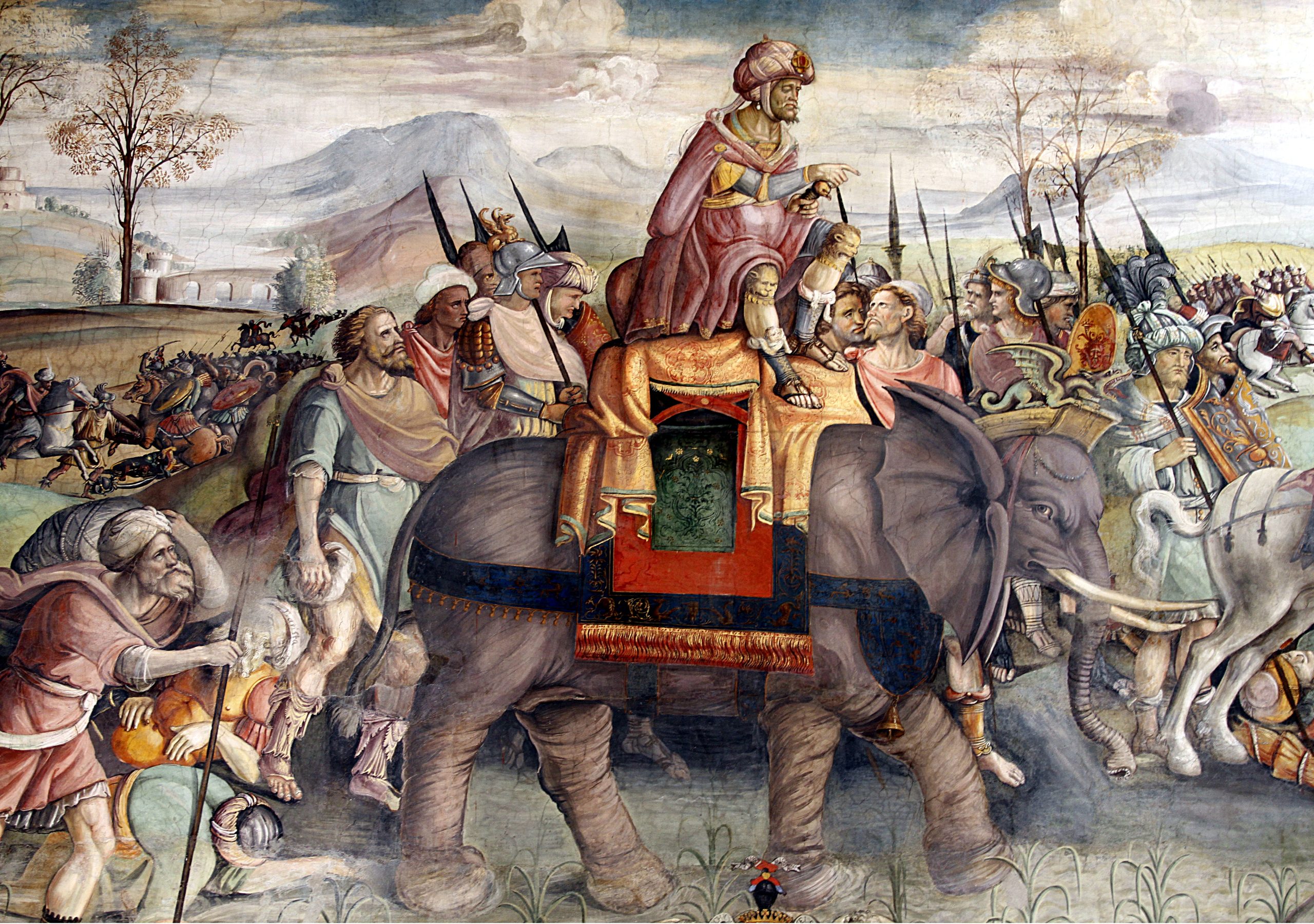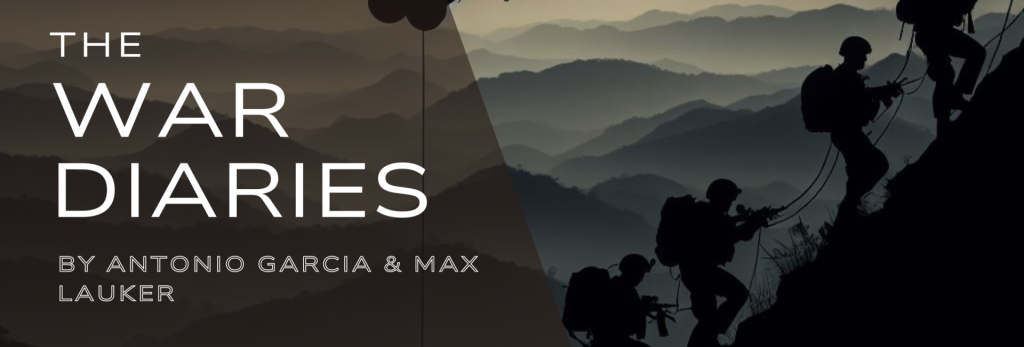
Hannibal crossing the Alps; detail from a fresco by Jacopo Ripanda, c. 1510. Photo by © José Luiz Bernardes Ribeiro, CC BY-SA 4.0
This article was originally published on The European Intelligencer.
There is an eternal discussion between soldiers and the society they serve. Once we have donned a military uniform, only to later replace it with civvies – we join an ancient tradition of former soldiers, better known as veterans. Politicians in many countries realize the value of soldiers and veterans. Abraham Lincoln once said, “Honour to the soldier and sailor everywhere who bravely bears his country’s cause.” He goes on to add that “Any nation that does not honor its heroes will not long endure.” The US perhaps had a wake-up call in terms of both military performance and treatment of its veterans after the Vietnam War. Henry Kissinger, a former Second World War soldier, and senior advisor to the politicians who led the US during the Vietnam War said, “Military men are dumb, stupid animals to be used as pawns for foreign policy.” Coming from a veteran, it makes one think…
Societies throughout the world have different relationships with veterans – these are complex and a lot depends on the context. In the UK and Spain, many members of the royal family serve in the military. In South Asia the military is held in high esteem, a legacy from the British colonial system perhaps, and in Brazil, Greece, Sweden, Cyprus, Algeria, Iran, and Israel, amongst others, there is conscription, and in these cases, it is normal for many to wear uniform for a small part of their lives. Parents say goodbye to their kids, in most cases their boys, and they start their compulsory service. Often comprising of short basic training, with some additional field training and possibly some maneuvers. Many of these recruits come back now able to do forty push-ups and assemble an assault rifle and voila – the kid has become a man.

Some link their military experience with historical nostalgia, and myth which is sometimes useful for their country’s narrative on wars, and operations. Ideas of masculinity, the military, and strength are commonplace in history, and summarised by a quote from Louis de Bernières’s Captain Corelli’s Mandolin “No man is a man until he has been a soldier.”
While we sometimes think of how things must have been during the Second World War or some conflict in the distant past, we will most likely never know – after all how could we ever truly know the feelings and norms of people at a different time? The truth is probably closer to a joke from the Spanish Civil War, where the Spaniards and Italians were allegedly fighting on the same side, and the Spaniards gave the order ‘a la bayoneta’ – to mount bayonets. The Italians were found running away later claiming that they heard ‘a la comioneta’ -to the truck. Unfair on the Italians but jokes are just that. Most of us quietly get on with making sense of our little worlds and how our societies often shun soldiers and veterans day to day, yet love them in the movies. It is strange, but military service appears to be something often adored with hindsight, just add a sprinkle of nostalgia and a touch of romance.
A British classics professor and historian once said that he could trace his professional heritage back to Herodotus who wrote of the Persian Wars. Maybe not that many soldiers would try and draw a straight line back to Alexander the Great, but some famous generals conveniently claim some inspiration from the shaven king, including, Julius Ceasar, Hannibal Barca, and Napoleon Bonaparte. It must be nice, but for the rest of us – we serve and go back to plowing the fields. Occasionally a Socrates may arise, he too a veteran, but this is one in a million – here perhaps is a lesson that almost everyone can be a soldier, and there are no limits to what you can do… but please let’s keep this realistic, and for the majority of us, let’s not use the father of Western Philosophy as our benchmark. Socrates, despite his brilliance had to also be subservient to the generals of the day.
This idea of the great general who could command and solve every issue through the use of force is perhaps something well suited for ancient history. No matter how brilliant Generals David Petraeus and H.R. McMaster are, they couldn’t solve the equations of Iraq and Afghanistan. Maybe that is unfair, as they did their best, and achieved a lot. Similarly Generals Michael Rose and Rupert Smith served in Bosnia, and despite both doing great work Smith’s force could unfortunately not prevent the massacre of Srebrenica – perhaps the UN Security Council tied him up in knots preventing him from getting his force where they needed to be. Generals are often blessed with massive egos and a good dose of intellect and then to balance the playing field, they are given almost impossible tasks – this then turns things into an ancient Greek play. And veterans, generally get it and do not expect generals to be able to resolve any societal issues, not even most issues in conflict – that would be something too specific, and after all generals are just that… generals. We will leave you a line from an Army ballad made famous by General McArthur’s farewell address – ‘old soldiers never die–they just fade away’. We encourage all veterans to write to us with their thoughts, and we will respond to every email. Issues 5 and 6 are about our experience in writing memoirs, and diaries, and the importance of veterans putting pen to paper.
Tony & Max
The War Diarists
About the Authors
Antonio Garcia is a civil servant, who additionally holds non-resident positions as a research fellow at Stellenbosch University, visiting lecturer at Durham University, and tutor at the Open University. As a combat engineer in the SANDF, Antonio has served in missions in the Sudan, the DRC, and South Africa and its borders. He has published widely on military history and strategy.
Max Lauker, served in the Swedish Armed Forces, 2002-2018. Primarily serving in Special Purpose Units belonging to the Norrland Dragoon Regiment, Arvidsjaur. Later serving in Stockholm and Karlsborg with units included under the special operations and intelligence umbrella. Several deployments over the years include Kosovo, Iraq, Afghanistan, Africa and the former Eastern Block leading numerous covert operations. Now working in the private security sector with Intelligence as his main discipline.